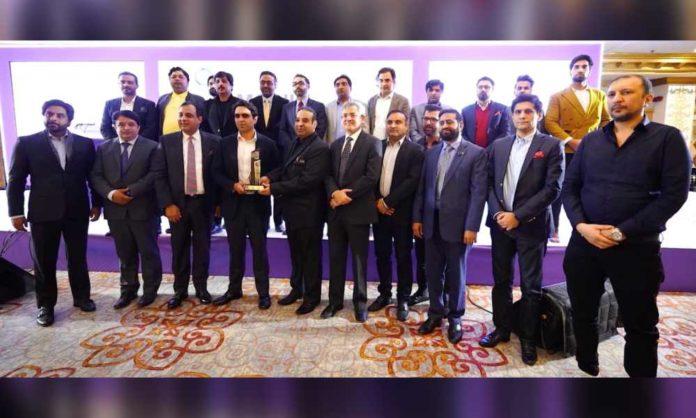The most popular product category worldwide is technical goods, particularly mobile phones. With 225 million or more people, Pakistan needs 36 million units annually. If properly planned for, Pakistan’s population strength and domestic demand can generate and speed up exports, as the country currently produces 93% or more of its own domestic demand thanks to the Engineering Development Board’s successfully implemented recently-launched mobile device manufacturing policy (EDB).
A summit was recently held by the Engineering Development Board (EDB) in collaboration with the Pakistan Mobile Phone Manufacturers Association to highlight the industry’s enormous potential (PMPMA). There were 31 local manufacturers in attendance at this event. This included the biggest mobile phone manufacturers in Pakistan producing renowned brands such as Samsung, Xiaomi, ZTE, Realme, Vivo, Oppo, Tecno, Infinix, Itel, G’FIVE, VNUS, Mobo Mobile, Digit, Dcode, Nokia, VgoTel, Qmobile, E-TACHI, Club, Calme, MeMobile, Hello Tech, Gresso, Emarat, Oukitel, MaxFone, Spice Mobile, Go Mobile, Faywa, Kechaoda, Pritel, SEGO, Sparx and Xmobile.

The Engineering Development Board (EDB), in partnership with the Pakistan Mobile Phone Manufacturers Association, recently conducted a summit to highlight the industry’s vast potential (PMPMA). At this event, 31 regional manufacturers were present. This included the biggest mobile phone manufacturers in Pakistan producing renowned brands such as Samsung, Xiaomi, ZTE, Realme, Vivo, Oppo, Tecno, Infinix, Itel, G’FIVE, VNUS, Mobo Mobile, Digit, Dcode, Nokia, VgoTel, Qmobile, E-TACHI, Club, Calme, MeMobile, Hello Tech, Gresso, Emarat, Oukitel, MaxFone, Spice Mobile, Go Mobile, Faywa, Kechaoda, Pritel, SEGO, Sparx and Xmobile.
The purpose of the event was to solicit feedback on local mobile phone manufacturing from all relevant stakeholders in order to design a roadmap for growth that would maximise industry output and benefit the local population. Industry experts acknowledged the enormous potential of local production to strengthen the economy of the nation, produce exports, and support a burgeoning workforce.

Pakistan started producing smartphones in 2015. The sector did not experience a significant change due to the third-world nation’s status and the lack of a policy platform. However, following 2018, the market for mobile products in the nation started to boom. More than $200 million was invested in the industry by local businesses. The Pakistani government created the first mobile device manufacturing policy as a result of this circumstance.
Major industry experts and government representatives were present at the event, and they spoke with participants about the possibilities of local mobile manufacturing in Pakistan. According to officials, if the local mobile industry grows at a healthy rate and receives backing from the government, it may contribute $14 billion to the nation’s coffers. The audience is given a number of justifications to support their presumption.

First off, Pakistan offers a cheap and accessible labour pool. An extensive workforce is needed to operate a local mobile phone assembly facility due to the labor-intensive nature of the sector. Due to the low cost of the workers, the product can also be manufactured more economically. Solar energy usage may also lower energy costs, which would be advantageous for Pakistan’s manufactured goods. Compared to other products or categories, competitive advantage is crucial in the manufacturing of mobile phones.
Participants emphasised the importance of the mobile phone industry to Pakistan’s economy and requested special focus and attention from the government to speed up the development of this industry while capitalising on the export opportunity that could undoubtedly increase Pakistan’s export to balance the trade deficit. The event came to a peaceful end.
Stay tuned to Brandsynario for the latest news and updates.







































